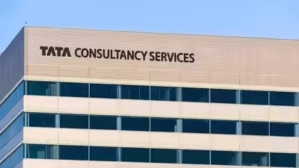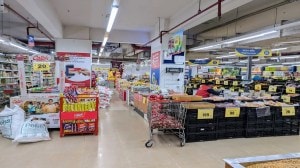The Global Antibiotic Research & Development Partnership (GARDP) and India-based Orchid Pharma Ltd (Orchid) have signed a sublicense agreement to manufacture cefiderocol, an antibiotic to treat certain Gram-negative infections.
According to a press statement, this agreement is a critical step in an ambitious project by Shionogi & Co. Ltd. (Shionogi), GARDP, and the Clinton Health Access Initiative (CHAI) that aims to provide access to cefiderocol in a number of predominantly low- and middle-income countries.
Gram-negative bacteria cause infections including pneumonia, bloodstream infections, wound or surgical site infections, and meningitis. According to the Centers for Disease Control and Prevention (CDC), Gram-negative bacteria are resistant to multiple drugs and are increasingly resistant to most available antibiotics.
Moreover, the new agreement will accelerate antibiotic access for tens of thousands of patients in regions with the highest rates of antimicrobial resistance (AMR).
Launched in June last year, the project represents a new model for bridging global gaps in equitable access to important antibiotics.
“Even though populations in low-and middle-income countries face a high burden of death from drug-resistant bacterial infections, their access to antibiotics with activity against resistant bacteria is usually delayed by more than a decade. That situation may worsen given that the number of serious, potentially life-threatening, infections due to carbapenem-resistant bacteria has been growing across multiple regions, including South Asia and Latin America,” the organisation said in a statement on Tuesday.
This innovative project aims to accelerate appropriate access to an affordable, quality-assured antibiotic to treat drug-resistant Gram-negative infections, it claimed.
“Access is one of the least talked about issues in the global AMR crisis. This is not just a global market failure but also a public health failure,” said Manica Balasegaram, Executive Director of GARDP in a statement. “We can effectively offset the burden of antibiotic resistance by reducing the access gap between high- and lower-income countries so that the right antibiotics are affordable and available for appropriate use. We are proud to work with Orchid to help make this a reality for cefiderocol, and we hope that this project can help pave the way for access to additional antibiotics in the future.”
Moreover, the licensing agreement signed between Shionogi and GARDP in June 2022 enables GARDP to make cefiderocol available in 135 countries (~70% of countries worldwide, including those with the highest AMR burden), none of which currently has access.
In 2019, Cefiderocol was approved by the US Food and Drug Administration (USFDA) and in 2020 it got approval from the European Medicines Agency. It is also on the World Health Organization (WHO) Model List of Essential Medicines.
“We are proud to work with Shionogi, GARDP, and CHAI to provide a global solution to access an important antibiotic for areas of need,” said Manish Dhanuka, Managing Director of Orchid Pharma. “Our decades-long expertise in cephalosporins will be advantageous in manufacturing affordable and quality-assured cefiderocol. This will address the unmet needs of patients across low- and middle-income countries where antimicrobial resistance is spreading.”
It is noteworthy that the manufacturing sublicense agreement has important access, environmental, and stewardship provisions, including cost-plus pricing, with a commitment to lower the costs based on volumes to help keep the product affordable for patients and health systems in low-resource settings.
According to GARDP, the sublicense access plan, constituting a part of the sublicense agreement, also stipulates that Orchid will submit the product to the WHO medicines prequalification (PQ) programme. Products listed with WHO PQ are eligible for a collaborative procedure for accelerated registration that reduces the time for national regulatory approvals to 90 days in participating countries.
In March this year, WHO PQ invited manufacturers of cefiderocol to submit expressions of interest, marking the first instance that WHO PQ opened eligibility to products that treat bacterial infections other than tuberculosis.
The signing of the manufacturing sublicense agreement builds on the license agreement between Shionogi and GARDP and on the collaboration agreement between Shionogi, GARDP, and CHAI, both of which were signed in June last year. Based on these agreements, CHAI will facilitate the technology transfer process between Shionogi and Orchid, and Shionogi will convey essential information for the manufacture of cefiderocol to Orchid, thus accelerating Orchid’s ability to manufacture
the product and reducing costs that might otherwise be passed on to patients.
“Our work goes beyond researching and developing innovative new medicines to address significant unmet medical needs. We are also focused on developing sustainable programs, including the critically important agreements with GARDP and CHAI, that focus on significant public health priorities, including access to and appropriate use of antibiotics,” said Takuko Sawada, Director and Vice Chairperson of the Board, Shionogi & Co. Ltd. “We welcome Orchid to this programme and are
confident that together we will continue to make strides toward increasing access to medications for people living in low- and middle-income countries.”








